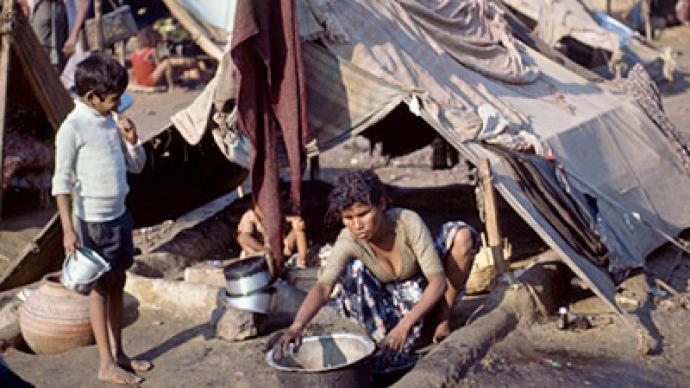Low Indian caste heading for high goals

India's class structure is arguably the world's most rigid, with people born into lower castes held back from opportunities, or even basic liberties. But one such group is breaking the mold of thousands of years of tradition.
The law is on their side but climbing the caste ladder is not easy.Avinash Jagtap is a Dalit – the lowest caste in the ancient Hindu caste system. Also known as untouchables, for centuries these people were restricted to work such as cleaning sewers and picking up dead animals from the streets. “My father, my mother, they suffered a lot in this society… they always hammered us that we are from this caste and how we have lived we don’t want you to suffer,” says Dalit millionaire Avanash Jagtap. So Jagtap made it his mission to get an education. He worked on his business during the night and went to college during the day. And now he is the owner of Everest Spun Pipes, a cement pipe making company worth 350 million rupees or 8 million dollars.What makes him different than any other rich Indian?While Jagtap claims that he did not feel any sort of discrimination, members of the Dalit community say that this growing club of Dalit millionaires and billionaires had to triumph over ingrained societal stereotypes."Earlier, a Dalit was not allowed to be in the same room as a Brahmin. He had to stand next to the door. Even a Dalit’s shadow was considered polluting and it was forbidden to fall on an upper caste,” says Dalit community leader Subhash Digambar Jagtap. Jagtap says that these preconceived notions actually motivated him to succeed. After completing his education, Jagtap’s business began to grow and today he sells pipes for irrigation purposes all over western India.Despite his accomplishments he is still humble about his journey.“We don’t feel that we are businessmen. We still think that we are working in this factory. This is our factory, this is our work and we have to do our work from morning to evening. We ate in this factory,” Avanash Jagtap says. The millionaires themselves say it is a side effect of India’s policy that opened up the economy to foreign investment in 1991. Since then, many businesses – including ones led by Dalits have thrived. The Dalit entrepreneurs also say the government’s efforts to make quotas for lower castes in schools and government jobs have helped them get an education to improve their lives.Even though many Dalits have overcome their social caste to become successful entrepreneurs, the majority of them still live in the slums. Despite these examples of success, many Dalits still feel that Indian society is structured to keep them right where they are.“I belong to the Dalit caste and people from other castes look down on us. My only wish is to study well and rise up in society,” says Dipak Babnrathorve. “People don’t care about us and don’t come to see how we live,” says another representative of the Dalit caste, Jay Shree Malya. “The government should take care of them if they have less money and should give them proper education,” believes Dalit Dipal Pursharam Jadhu. But the millionaires believe that if they can do it then other members of their caste can too, using their willpower to overcome the odds“Every Dalit person who is oppressed can do anything, he just has to have willpower,” says Avanash Jagtap.












